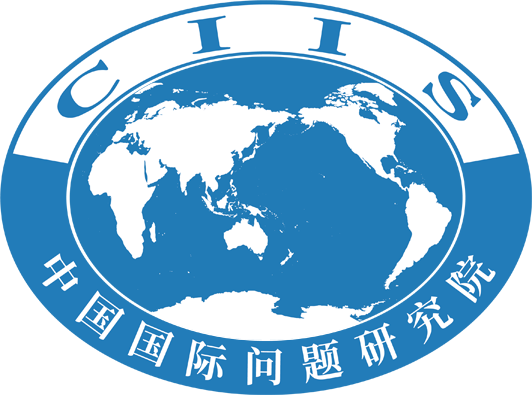Developing countries are in a fundamental position in China's diplomatic layout and have long provided important political support to China. China attaches great importance to relations with developing countries and actively advocates and supports South-South cooperation. In the fight against COVID-19 outbreak, developing countries not only do their best to provide material support to China, but also frequently speak for China on the international stage, praising China’s efforts of fighting the pandemic and “Chinese experience”, which vividly reflects the spirit and connotation of South-South cooperation.
Looking at the three regions of the Middle East, South Asia, and Africa, in which the developing countries are concentrated in, though the overall situation is under control, potential risks cannot be ignored. In the Middle East, there is explosive growth of infections in Iran. The situation in Qatar, Israel and other countries is becoming increasingly severe as well. In addition, geopolitical struggles have caused long-term turbulence in the Middle East, which makes it an even greater challenge to fight against the virus. In South Asia, the epidemic development is still in its infancy, but given the large population and limited epidemic prevention capabilities there, the possibility of a further spread of the virus cannot be ruled out. The period ahead will be a critical stage for South Asia to contain the coronavirus outbreak. In Africa, the epidemic is generally manageable. The previous experience of fighting Ebola and the early intervention of WHO and other agencies have given Africa a certain amount of time for virus prevention.
Unlike developed countries such as European countries, the United States, Japan and South Korea, the developing country’s medical system is inherently weak. There are obvious shortcomings in nucleic acid detection, treatment capacity, and financial support, etc. Besides, there are also other kinds of epidemics that need to be dealt with at the same time. The pressure of “multi-line operations” is overwhelming. If the coronavirus becomes a pandemic in other developing countries, it will probably lead to more serious consequences. Based on the considerations above, China actively provides support to countries mentioned above within multilateral and bilateral framework to help them improve their medical systems and make preparations. At the official level, China actively provides developing countries with financial support, human and technical support as well as material support. At non-governmental level, Chinese at home and abroad along with Chinese companies have been actively devoted themselves to material donation and fund raising, hoping to overcome the hardship together with other countries. Meanwhile, China is willing to share its experience with developing countries to help them achieve goals of “early detection, early reporting, early quarantine and early treatment”, and “leave no patient unattended”.
In this worldwide fight against coronavirus, the global health governance system represented by the Word Health Organization (WHO) has played an important role. It effectively promotes information sharing and action coordination among countries. But it is still faced with many problems. Developing countries have large populations and weak medical systems, therefore are extremely vulnerable to epidemics. In the future, we should actively promote the reform of the global health governance system, strengthening the capacity and efficiency of it and enhancing equity in the distribution of global health resources, so that it can better benefit people in developing countries.
In this regard, CIIS has recently set up a research group chaired by President Qi Zhenhong to closely follow the COVID-19 pandemic and conduct relative researches. Hereby, we are releasing the sixth edition of the report series:China Fights COVID-19 Together with Other Developing Countries: Co-building a Community with a Shared Future for Mankind.
PDF Version: “China and the World” Report Series,No.6
Looking at the three regions of the Middle East, South Asia, and Africa, in which the developing countries are concentrated in, though the overall situation is under control, potential risks cannot be ignored. In the Middle East, there is explosive growth of infections in Iran. The situation in Qatar, Israel and other countries is becoming increasingly severe as well. In addition, geopolitical struggles have caused long-term turbulence in the Middle East, which makes it an even greater challenge to fight against the virus. In South Asia, the epidemic development is still in its infancy, but given the large population and limited epidemic prevention capabilities there, the possibility of a further spread of the virus cannot be ruled out. The period ahead will be a critical stage for South Asia to contain the coronavirus outbreak. In Africa, the epidemic is generally manageable. The previous experience of fighting Ebola and the early intervention of WHO and other agencies have given Africa a certain amount of time for virus prevention.
Unlike developed countries such as European countries, the United States, Japan and South Korea, the developing country’s medical system is inherently weak. There are obvious shortcomings in nucleic acid detection, treatment capacity, and financial support, etc. Besides, there are also other kinds of epidemics that need to be dealt with at the same time. The pressure of “multi-line operations” is overwhelming. If the coronavirus becomes a pandemic in other developing countries, it will probably lead to more serious consequences. Based on the considerations above, China actively provides support to countries mentioned above within multilateral and bilateral framework to help them improve their medical systems and make preparations. At the official level, China actively provides developing countries with financial support, human and technical support as well as material support. At non-governmental level, Chinese at home and abroad along with Chinese companies have been actively devoted themselves to material donation and fund raising, hoping to overcome the hardship together with other countries. Meanwhile, China is willing to share its experience with developing countries to help them achieve goals of “early detection, early reporting, early quarantine and early treatment”, and “leave no patient unattended”.
In this worldwide fight against coronavirus, the global health governance system represented by the Word Health Organization (WHO) has played an important role. It effectively promotes information sharing and action coordination among countries. But it is still faced with many problems. Developing countries have large populations and weak medical systems, therefore are extremely vulnerable to epidemics. In the future, we should actively promote the reform of the global health governance system, strengthening the capacity and efficiency of it and enhancing equity in the distribution of global health resources, so that it can better benefit people in developing countries.
In this regard, CIIS has recently set up a research group chaired by President Qi Zhenhong to closely follow the COVID-19 pandemic and conduct relative researches. Hereby, we are releasing the sixth edition of the report series:China Fights COVID-19 Together with Other Developing Countries: Co-building a Community with a Shared Future for Mankind.
PDF Version: “China and the World” Report Series,No.6



